The untold story of Orkut Büyükkökten—the man who built world’s largest social network before Mark Zuckerberg
If you are an 80s' born, then chances are that your first social media account was on orkut.com. The platform was named after its creator Orkut Büyükkökten, a Turkish software engineer. Thirteen years after founding the iconic social network, Orkut’s tryst with technology and connecting people continues. In this episode of Techie Tuesdays, YourStory speaks to Orkut, the man who’s now busy building his fourth social networking platform, Hello.com.
At its peak, orkut.com had more than 300 million users—a number that Facebook could reach only in the third quarter of 2009. And all this was achieved with merely 30 engineers and designers in the team. For most people, Orkut was their introduction to the world of social networking. But for its creator, Orkut Büyükkökten, it was the third time that he had built a social networking website. Started as a 20 percent project (giving 20 percent time of day’s job) at Google, it didn’t take too long for it to reach a stage where it had the same number of pages as Google search.
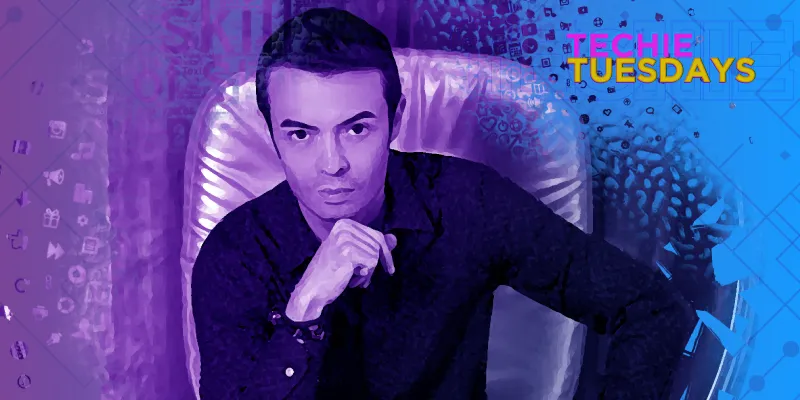
This week’s Techie Tuesdays brings you the story of Orkut Büyükkökten, the man who never stopped loving people and believed in the power of technology to bring people together. He was bullied as a child, sued for wrong reasons (and proved so later), went through heartbreaks, but didn’t let all this shake his faith in the basic goodness of mankind. A certified bar tender, massage therapist and a musician and dancer above par, Orkut is a complete package as a human being.
At 42, Orkut is back, to say 'Hello' to the next generation of orkut.com. Excerpts from Orkut’s conversation with YourStory.
Related read - The untold story of Alan Cooper, the father of Visual Basic
Turkish boy with a German accent
Orkut was born in Turkey but spent his early years in Germany with his parents moving there when he was one year old. They returned to Turkey when he was in the second standard. He now spoke with a German accent. He started coding (in BASIC) when he was in the fourth standard.
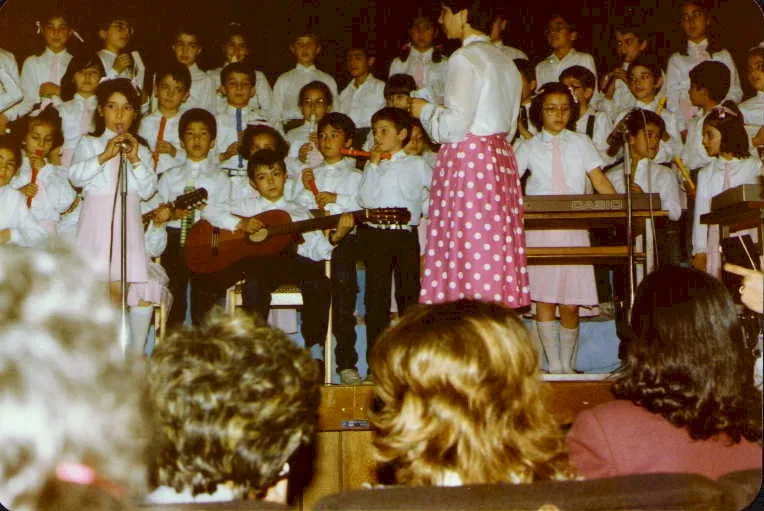
In high school, Orkut was bullied by a group of three boys. He says,
One of the sad things is that when you're bullied as a kid you don't even know why you get bullied. You start thinking that there's something wrong with you, that they hate you or you did something bad.
Years later, he found out from one of the three that he was bullied because he had good grades. He adds,
This is also why this generation needs kindness, togetherness, and compassion more than ever because we all feel lonely sometimes. That's why therapists will never go out of business and that's why the world needs hello.com.
Orkut went to Bilkent University in Ankara to pursue computer science. Later, when he was applying for higher studies in the US, he deliberately skipped MIT as he thought it was too serious a place to be in. He almost gave Stanford a miss too because he found the application fee ($100) too steep. It was only after his father insisted that Orkut decided to send his application there. With CMU and Stanford acceptance letters in hand, Orkut chose Stanford because of California's weather. He says,
Sometimes small decisions change your life forever.
Stanford–efficient web browsing on handheld devices
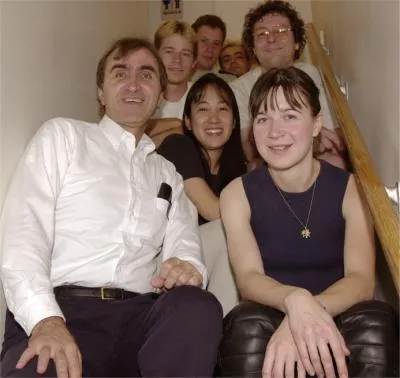
Orkut’s thesis at Stanford was on efficient web browsing on handheld devices. He explains,
When you have a tiny screen with low resolution, you want to summarise the content on a web page and then process it before sending a different version or view of the page to the handheld device.
In the case of large paragraphs, a summary has to be created. That requires a lot of thinking and algorithms and tech summarisation. Similarly, if a page has a lot of links on it, one has to make it easy to navigate. If the web page has images, it has to be made sure that instead of sending full resolution images only smaller thumbprint is sent to the device.
According to him, there are two different ways of looking at content:
- Where you have a proxy and a different view of the web page.
- Where you're just rendering it the way you do on a regular screen.
In the latter case, you’ll end up seeing just a partial view of the page (and hence scroll a lot both up and down and sideways).
Orkut had a proxy server where he would download the web page or make it a part of the website it belonged to. Then the server would process it for the device depending on the limitations. That made it a lot easier and faster to browse content, search for it and navigate through it on small gadgets.
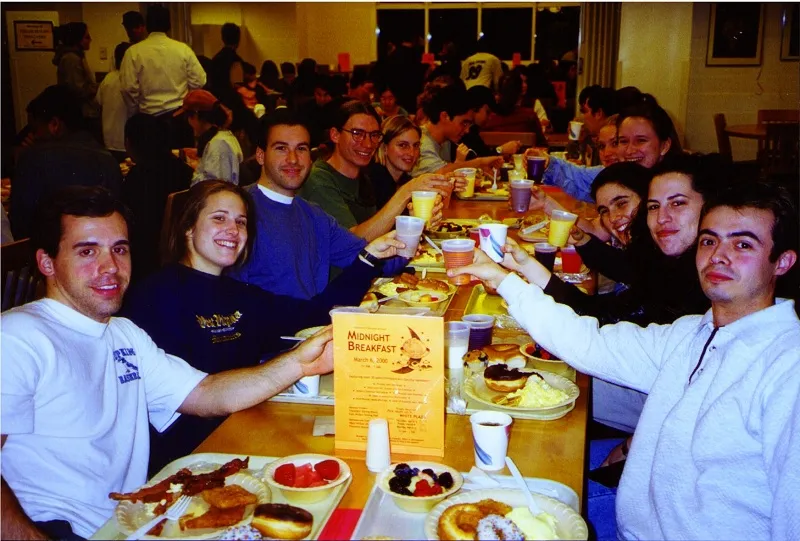
He experimented a lot with the traditional solutions out there and found out that his (solution) was faster and more effective. He named the application 'Power Browser' as it was very powerful.
At Stanford, Orkut remained busy working on his thesis and attending conferences. He also met Larry Page and Sergey Brin when Google was still google.stanford.edu.
Also read - Meet Kiran Bhat—the man who engineered Hulk and Tarkin to win 2017 sci-tech Oscar
Stanford—the tale of two social networks
At Stanford, Orkut interacted more with undergraduate students than graduate students. In the fall of 2001, he launched Club Nexus, a social network for Stanford students and got a good response from undergraduate students. After its launch at a party, students flocked to register and shared emails of friends to invite them later. The launch also helped him get graduate and undergraduate students together to work on one platform.
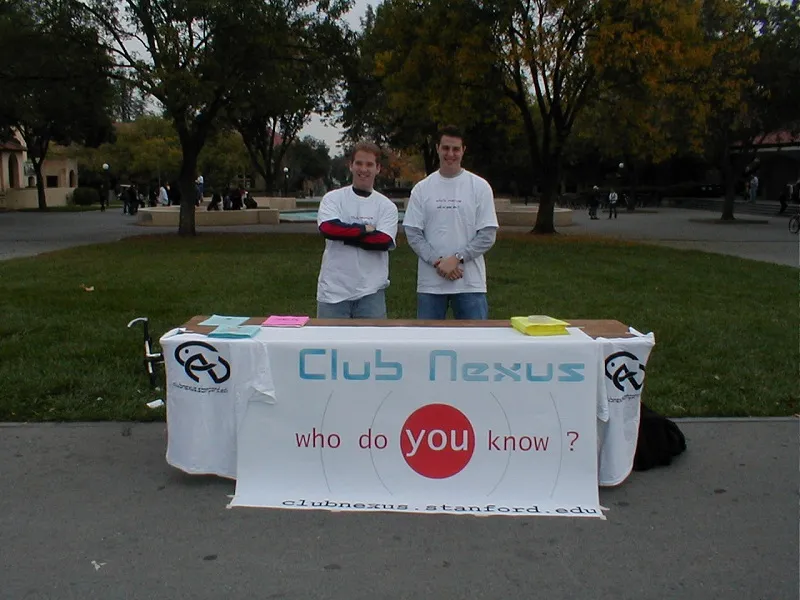
Orkut then worked on inCircle, an alumni social network for the Stanford Alumni Association.
He wrote the entire code base of Club Nexus and inCircle. The code was written in C#, the database was in Microsoft SQL server, and it was using ASPX pages. He used Windows server for both the platforms. Everything was able to run through a single computer. But eventually, when he got more users, he ended up moving different components to different servers. For example, different servers for images, database, and later for user information and community information.
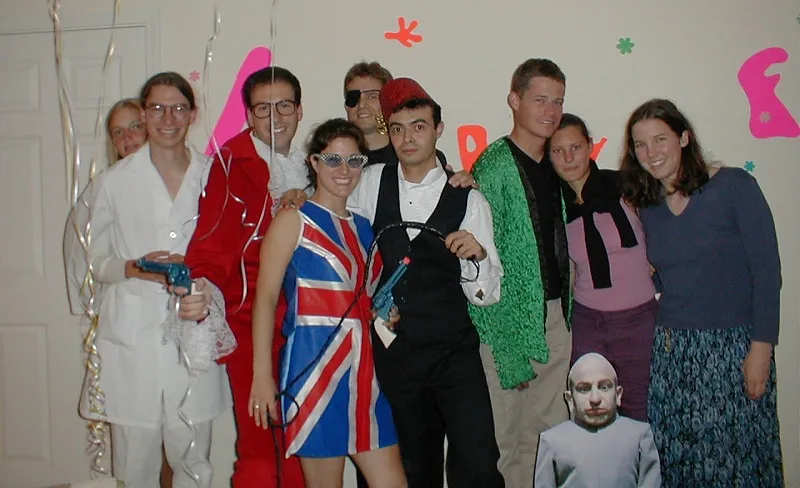
Microsoft vs Google
In his final year, Orkut was busy wrapping up his degree and writing his thesis. When he started getting job offers, two out of them stood out—one from Google and the other from Microsoft. Microsoft wanted him to work on their tablet team (given his experience and research with small/handheld devices). However, Orkut found Google a lot more exciting as it was a company he really believed in and knew its founders. Moreover, he didn't have to move far away, thus allowing him to still be surrounded by his friends and work in a cool startup. Google was initially in Palo Alto and then moved to Mountain View, which was only 10 minutes’ drive from Stanford.
Since Orkut spent a lot of time during his last two years of college in Club Nexus (and inCircle), many thought that his thesis was on social science or social networks. He was always very excited to connect people with each other—meeting people, making new friends—and found technology fascinating for this purpose.. He says,
People and technology are two of my passions. I dedicated almost my whole career connecting people through technology.

Google—early days
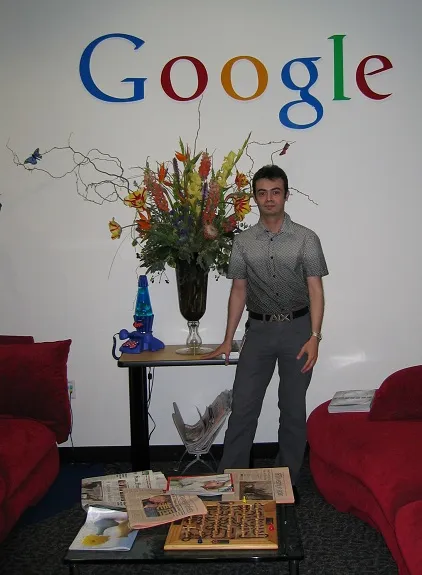
In 2002, Orkut joined Google’s engineering team as a front-end developer and worked on the code base that rendered the web pages. Orkut believes that if you have hundreds of millions of users, then any small change has a huge impact. He says, “That's a great thing for companies like Google because you know that you're making a change and affecting peoples' lives in a positive way.”
Orkut’s heart was still in social networking and as a 20 percent project (a concept where you devote 20 percent of your time to something you love given that it aligns with Google’s core mission), he created a social network called Eden. He picked that name because it represented a wonderful place for people to come together (like heaven). He says,
“We did a dog food (tech slang for working out the glitches) with Google employees and they really liked it. We couldn’t get the domain eden.com. I then had a meeting with Eric Schmidt and Marissa Mayer.” They suggested that he launch it as orkut.com because:
- He was the one who worked on it,
- It's a five-letter word and,
- The domain was available.
Orkut recalls,
When we went live with orkut.com, we didn't have any idea how popular it was going to be or how fast it would grow. It exceeded our expectation in every single possible way.
Orkut.com—from 20 percent to 100 percent project

With orkut.com, Orkut wanted to create a global community to connect people with different needs. Orkut.com had three profiles for users:
- Generic profile
- Professional profile
- Dating profile
He wanted orkut.com to be fun and uplifting. He says, "If you look at the design, colour choices, icons, it had a very light feel to it. I used different pastels of blue, my favourite colour.”
The platform provided all the necessary tools a social network has—profiles, groups, and one to one messaging.
Orkut.com was a one-man project. Orkut designed all of orkut.com single-handedly (including web design). He set up the databases, wrote all the code base, and even went to data centres to set up the computers. Soon after the launch, when the website got hundreds of thousands of users, Google decided to assign more resources to orkut.com.
Orkut.com—scaling up
Orkut.com used AdSense for monetisation. The website’s biggest challenge was scaling. He says,
With orkut.com we realised that it was hard to scale using Microsoft technologies and tools, so we rewrote entire orkut.com using Google's in-house tools. We switched from C# and Windows to Unix based machines that use C++ and Java. We switched to My SQL. That process took an entire year as it was extremely difficult to migrate from one set of technologies to other with an active large user base.
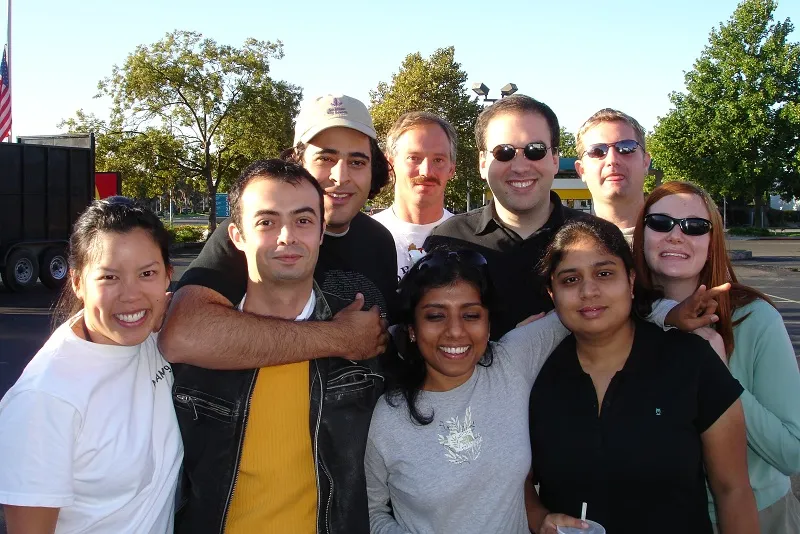
During that transition, a lot of user base in the US left orkut.com. However, they kept growing internationally in countries like Estonia, Brazil, and India.
Growth formula
Orkut thinks there's no secret sauce or formula to succeed in any country, because if there was one then one could just replicate it, make it viral, and take over the world. According to Orkut, orkut.com gave a sense of togetherness and connectedness among the community (of its users). He recalls one case thus,
My friend from New York met a girl online from Estonia and they started talking to each other on orkut.com. This was followed by calls and he visited her in Estonia later. Eventually, she moved to New York and they got married. They have a son now.
He believes that his friend might be the reason for orkut.com’s popularity in Estonia. He adds, “It's a small country with a couple of million users. Sometimes, all it takes is one person to spread the word to get popular.”
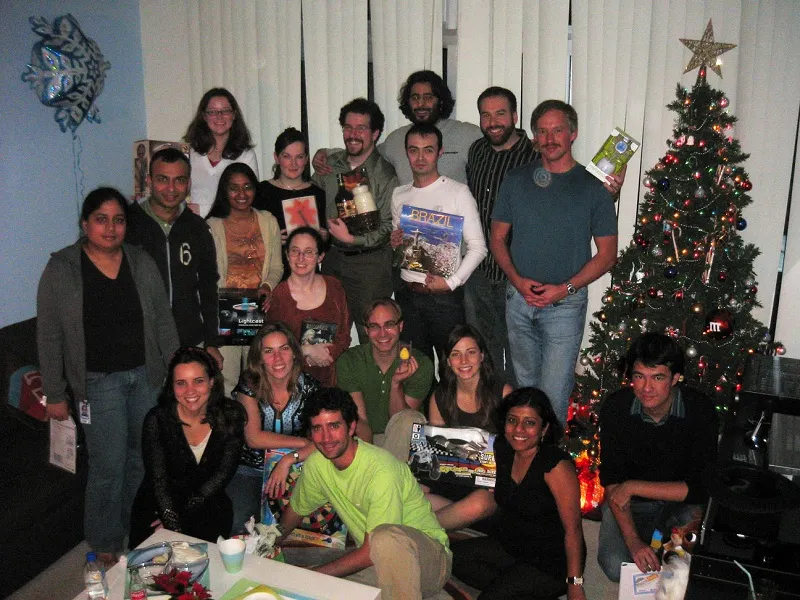
With the launch of orkut.co.in and orkut.br, the team started localising and translating the content in Hindi, Portuguese, Spanish (and other languages). They added tools to support language segmentation.
Orkut recalls,
At one point, orkut.com became so popular that we had as many pages as Google search. We grew over 300 million users across the globe and the platform.
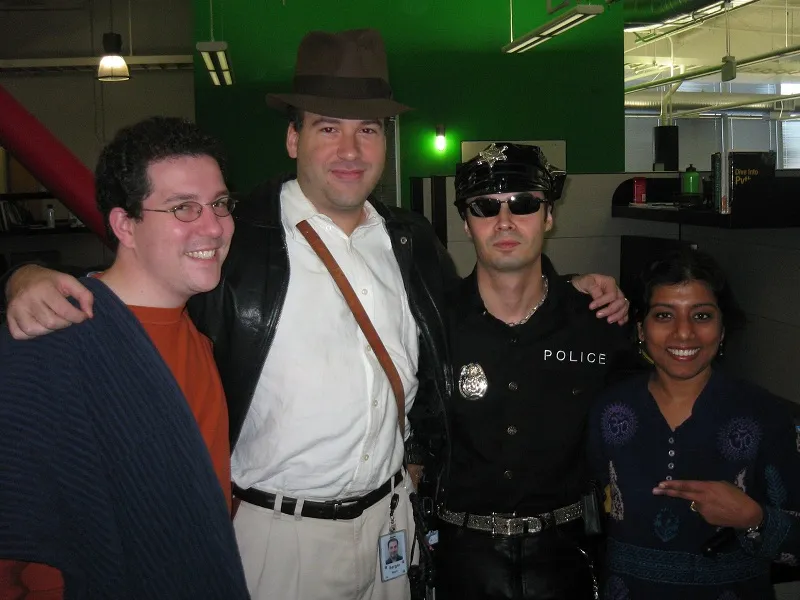
The lawsuit
In 2002, Orkut launched a company, Affinity Engines, to commercialise inCircle and Club Nexus. He along with Google were sued by Affinity Engines in 2004 for trade secret misappropriation. Affinity Engines claimed that Orkut and Google had stolen Affinity Engines' code to launch the "orkut.com" social networking service at Google. The lawsuit was settled in 2006. Orkut says,
I knew fully in my heart that I hadn't done anything wrong. But we live in a country where it's too easy to sue people. And sometimes, people sue just to get financial benefit from it. It was a big distraction for me, something I didn't deserve. I'm happy that it's over. I like to believe that everything we go through happens for a reason. Events like this make you a stronger person.
You may also like - Meet the co-creator of Julia programming language, Viral Shah
The sudden ‘rush’ of Finnish users
Orkut has different meanings in different languages. In Turkish, it means ‘happy city’ while in Finnish, it means ‘multiple orgasms in a row’. When orkut.com was launched, the team was pleasantly surprised to see a flood of users from Finland signing up. Orkut recalls,
“We didn't have any clue then. It turns out that they thought orkut.com to mean adult website. We weren't able to satisfy those users so they all left.”
Product manager at Google
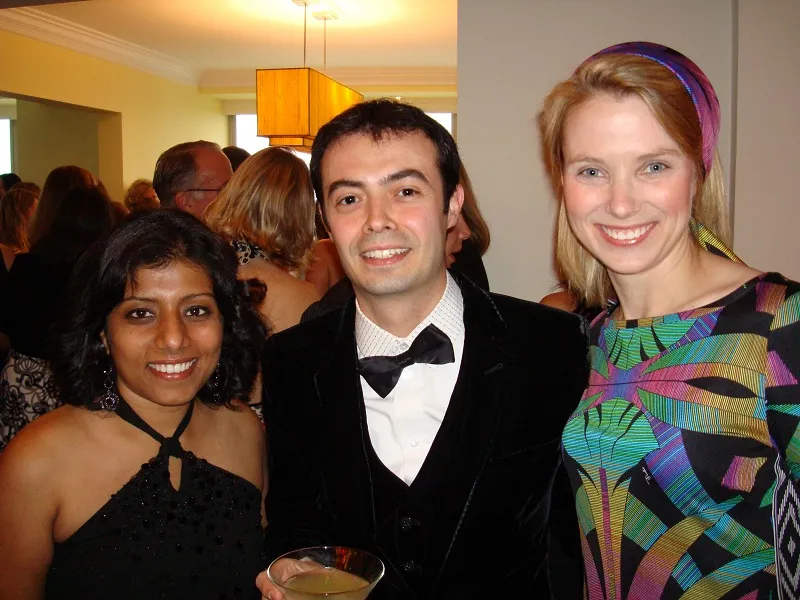
Orkut left orkut.com team in 2008 and decided to become a product manager at Google. He joined the consumer team at Google and worked with Marissa Mayer for many years before she moved to Yahoo. He worked on Google images (UI and search), Google one bar (shifting from side to the integrated experience of one bar on the top), and Google videos. He felt that as a product manager, he had more control over the vision, direction, feature set, and design of the product.
The ‘social (media) landscape rant’
A lot has happened in the social landscape in the past decade. Everything has transitioned to mobile devices—searching, browsing, shopping, consuming news, watching videos. In the orkut.com generation, everyone was on desktop, web browsers, and that's how they all accessed internet. People were learning about social networks for the first time. The current generation is on multiple social networks which they can access through their smartphones. All this could happen because of advances in technology and infrastructure. But as a result, consumer behaviour has also changed fundamentally—the way we communicate, share, and connect online.
Orkut thinks that a lot of the changes are not necessarily positive. He says,
"If you look at social networks today, there's so much social ambiguity when you talk to people. Messaging has become our primary way to communicate. People now use WhatsApp, Facebook messenger, or text messages to communicate. We have almost stopped talking to each other on phone. A lot of this is happening because of our insecurities. We spend so much time online—watching Netflix, playing video games or not being around people, that we have almost forgotten how to communicate. You see that when you try to speak to people face to face. Or when you go to a train station or a coffee shop and see people on their phones and not talking to each other. That's creating a society which is insecure, unhappy, and disconnected."
He adds,
As a result, there's so much depression, a lot of which is brought by the social media. If you look at how people represent themselves—it's not who they genuinely are but it's who they all want to see in themselves. There's so much narcissism, so many selfies. Selfies and selfie sticks are one of the worst things that happened to this generation because we learn to judge and be judged by our appearances, not by who we truly are.
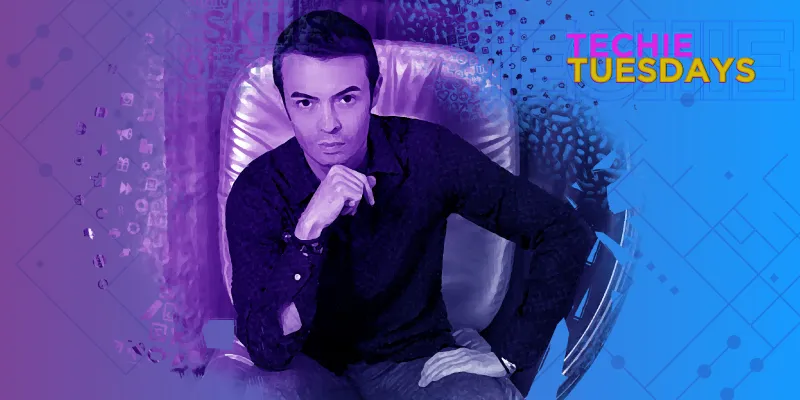
According to Orkut, if we look at our Facebook feed, we see all these perfect moments. Whenever they (users) do anything, they take a picture and write about it. He says, “You get bombarded by these happy perfect moments that people have and then you feel that you're missing out. This fear of missing out now has a term, ie FOMO. In reality, you know that life is not perfect. Lots of moments are not great and that's a part of being human because we all have pain, sufferings, and heartbreaks. Social media is hiding all that and creating a culture of people that's all about 'look at my friends, look what all I'm doing, look at my selfies' and that makes us shallow. In order to be happy and fulfilled in life, we should be allowed to become vulnerable. We have to genuinely express ourselves. We have to be able to get intimate with people around us and share openly, and be able to trust people when we share.”
He further adds,
With the new generation, it's getting harder and harder to be real. Social ambiguity is in messaging as well. You send a message and the person doesn't message you back right away but waits for a few hours because they want to act cool. If you message three times in a row, you come out as desperate. All these games that people play aren't helping us emotionally or psychologically because the normal human response to a message is to respond immediately if you're available. This is the sign of confidence, whereas we have a generation that's so insecure that they're afraid to text right back or make a phone call or share something about themselves which is not perfect.
Also read - Meet Vijaya Kumar Ivaturi, the ex-CTO of Wipro, who’s ‘not business as usual’
Social network #4—Hello.com
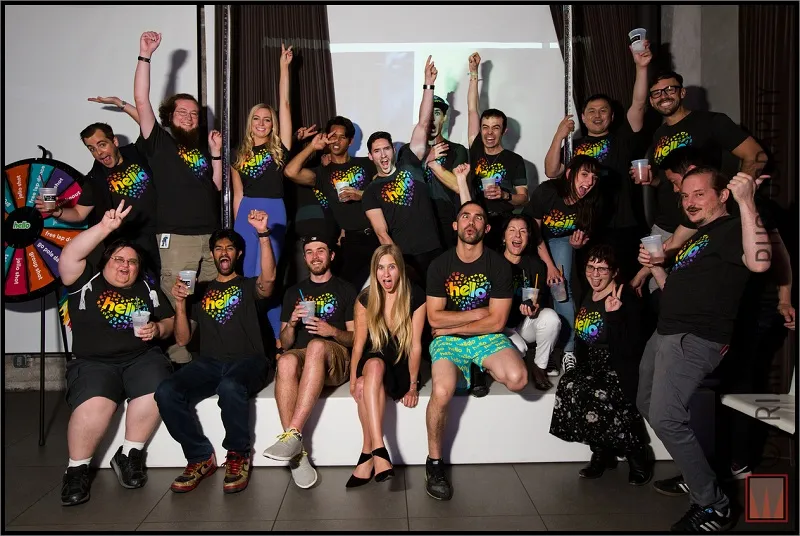
Orkut sees Hello.com as a spiritual successor to orkut.com. He wanted to create a social network that brings people together where everyone can be authentic and be themselves. He believes that on Facebook, Twitter or Instagram, you don't make friends. The users are just communicating with people they already know or giving life updates to their friends and people that are following them. Hello.com doesn’t take social graph into context but rather refers to common interests, your location, your reputation, and your personality. That provides a different feed. Orkut says,
In real life as well, common interest is the best way to bring people together. On Hello, we connect people around passions (called personas).
Philosophy of Orkut (and Hello.com)
We all look for purpose in life. For Orkut, it was all about leaving a better world behind. Connecting people through technology has been his life goal and he continues to pursue it with Hello. He says,
All social apps out there promise us friendships, companionship and romance but we're more divided and more disconnected than ever. We're not ending up as better people.
According to Orkut, driven by the goal to monetise more, these social media apps try to increase the amount of time spent on their services and that’s how they measure their success. He argues, “If the goal is to bring people together then the users should be spending more time in the coffee shop, or a restaurant or a bar, connecting to each other in real life, instead of spending all of that time online.”
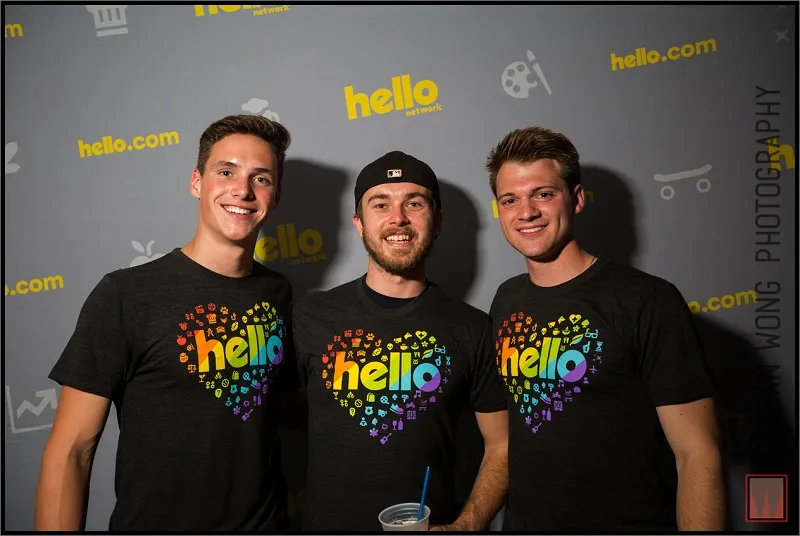
Orkut believes that one can always introduce monetisation in a way that is healthy for the ecosystem (for example, Google AdWords).
Hello.com—team, growth, and India story
Orkut started Hello.com with his Co-founder John Murphy and two more engineers from Google. They are using Google Cloud Platform (GCP) for the backend for their Apps
Hello.com was launched in Brazil in July 2016 which was followed by iterations (based on users' feedback). For its launch in India, Hello.com added India-specific content—like cricket fan, Bollywood fan, and spiritual personas. The platform had a beta launch in India four weeks ago.
Orkut claims that Hello.com has over 300,000 users who are spending 400 to 500 minutes per month (which is better than all the social media apps out there except Facebook).

Technology for Orkut
Being a software engineer, Orkut sees technology as a combination of hardware and software. He says,
“It's not just about cell phones or laptops but also about all the magic that happens behind the scenes.”
Orkut was always fascinated with technology because it makes things possible which otherwise couldn’t have been imagined. He adds, “I hope that we all get to experience singularity where machines will start outperforming humans and at that critical juncture we'll see a lot of magical things happening.”
Related read- Meet the chief architect of Aadhaar, Pramod Varma
Decision making and values
Decision making for Orkut is sorted. He says,
If I arrive at a fork and there are two paths I can take, the question I ask myself is which one has a heart. I think the most important things in life can only be felt with the heart but not seen by the eyes.
However, it’s contradictory to his otherwise logical nature. Right from childhood, Orkut was fascinated with maths and loved logic, equations, and algorithms. He was even a part of the Turkish Math Olympiad team. He says, “When you deal with logic so often, it's really hard to follow your heart.”
At the end, he goes for something that is good for people around him and if it makes him a better person.
Whenever Orkut meets anyone, his first instinct is to trust him/her. That speaks a lot about his personality. According to Orkut’s colleague Lisa, “Orkut is open, welcoming, and non-judgemental. He truly lives his life that way.”
Orkut—a man of few words but many languages and skills
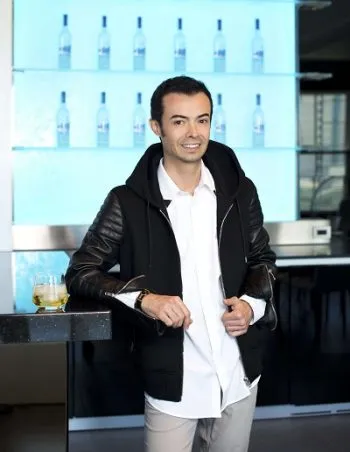
Orkut loves languages. He speaks German, Turkish, English, and French (learnt at Stanford). He loves music and plays guitar, mandolin, keyboard, and piano. His love for dancing made him take every single dance class at Stanford. He learnt swing dance, modern dance, tango, salsa, and even ballet at one point. He grins, “I could have minored in dance at Stanford.”
He likes mixology and is a certified bartender. He also went to massage school for two years and is now a certified massage therapist. But above all, he just loves being surrounded by people and spending time with them. He gets energised with it. He says,
I would like to be known as someone who had an impact on the world and made it a better place. And for me, making an impact would be about connecting right sets of people to each other, creating more togetherness, more friendships, and love around the world.
You can visit Hello.com (download the app) and connect with Orkut on Twitter.







